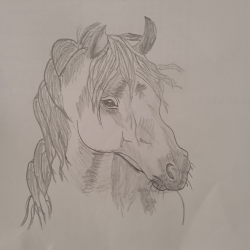

In childhood, we all must have not only played 'Luka-Chupi' but also had a lot of fun in it. In this game, everyone used to hide and someone used to find one. Remember, don't know how many times we were hiding behind someone's garden, bushes, and trees.
In the modern era, the game has taken a reverse avatar, where a large number of players move freely and one person suddenly appears from behind or from hiding and catches the rest of the unsuspecting people. Those caught in this version of the game get Rs.50. From one thousand are given.
The game is permitted by all the state governments and is played from 8 in the morning until about 10 at night when the city goes to sleep. The hidden person in this game has the power to capture you at will! You must be wondering what is this game.
If you still do not understand, then let me give you another hint. Those hiding behind trees also get official uniforms to wear! Now I don't want to test your patience anymore. In this game on the traffic signals of every city, we are caught almost daily and the traffic police are the ones who catch them. That's why I call it 'hide and seek'.
I always wonder what should be the immediate priority of the traffic police. To make traffic accessible or to catch a few criminals by playing hide and seek? Most of us believe that the main responsibility of the police is traffic control, and collecting fines should be secondary.
But since the traffic department gives recovery targets to every constable, the purpose of controlling the traffic gets lost somewhere, this is the situation all over the country.
Amarjeet Singh, the most popular traffic cop in Mumbai in the 1980-the 90s, once told me that if police constables were to be seen at signal crossings, 50% of the rule-breaking cases would come down anyway.
Now I would like to suggest that in modern traffic management, the remaining 50% fine can be collected by outsourcing it to some agency, which should stand behind and become a support system, where earlier policemen used to hide. But what happens is that we see trainee policemen managing the traffic and the real policemen keep bargaining with the rule breakers at the nooks and corners.
Unless the purpose is clear that they are for traffic management and not for collecting fines, the traffic management project in the country can never be successful. Above this, the traffic department also issues a regular press release about fine recovery every month in the media.
I always wonder whether it is a matter of pride that they collected so many fines or a shame that they failed to manage the traffic which resulted in so many fines. I am sure the police would be proud to reveal the fine amount deposited.


